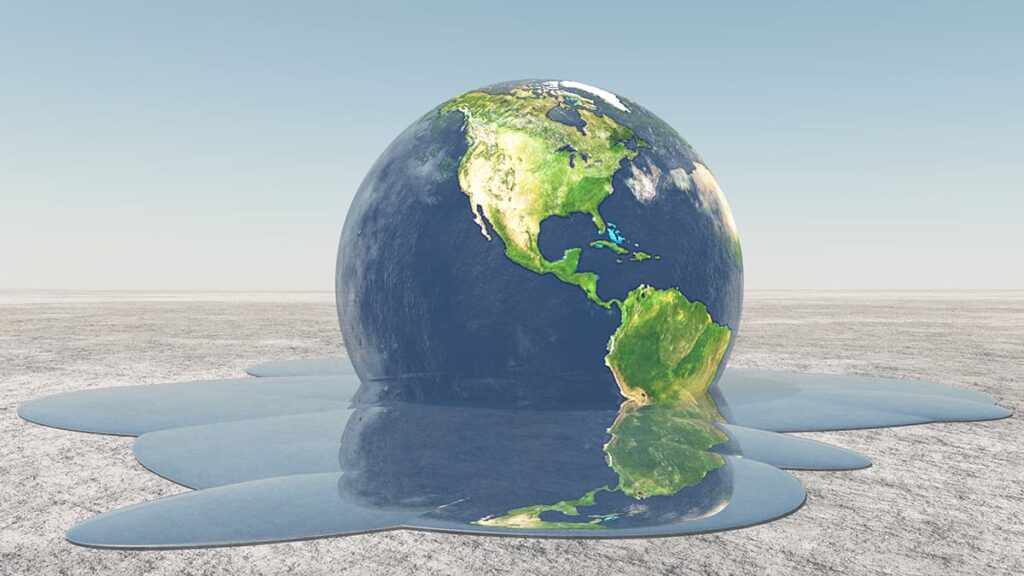In recent decades, the planet has been undergoing rapid changes in its climate system, prompting urgent discussions about global warming and climate change. These two interconnected phenomena are now at the forefront of scientific research, policy-making, and public concern. In this blog, we explore the meaning of climate change, delve into the Intergovernmental Panel on Climate Change (IPCC) reports, outline the effects and consequences of global warming, and discuss the way forward.
Climate Change Meaning and Introduction
Climate change refers to long-term shifts in temperatures and weather patterns. While these shifts can be natural, human activities—primarily the burning of fossil fuels like coal, oil, and gas—have been the dominant force behind climate change since the 19th century. These activities release greenhouse gases (GHGs) into the atmosphere, trapping heat and resulting in global warming.
Global warming specifically describes the Earth’s rising surface temperatures. Although it’s a component of climate change, it’s just one of many effects that result from changing global climatic conditions.
Global Warming and Climate Change: What’s the Difference?
While often used interchangeably, global warming and climate change are distinct terms:
- Global warming refers to the rise in global average temperatures.
- Climate change encompasses not only rising temperatures but also changes in precipitation patterns, sea-level rise, and extreme weather events.
Together, these changes are reshaping the natural world and the human societies that depend on it.
10 Effects of Climate Change
Climate change manifests in a multitude of ways, impacting every aspect of life on Earth. Here are ten of its most profound effects:
- Rising Sea Levels – Melting glaciers and ice caps contribute to sea-level rise, threatening coastal communities.
- More Intense Heatwaves – Increasing temperatures cause prolonged and extreme heatwaves, affecting health and productivity.
- More Frequent and Severe Natural Disasters – Hurricanes, floods, and droughts are becoming more intense and frequent.
- Loss of Biodiversity – Many species struggle to adapt, leading to habitat loss and extinction.
- Ocean Acidification – CO₂ absorbed by oceans alters marine ecosystems and harms coral reefs.
- Disruption to Agriculture – Unpredictable weather reduces crop yields, endangering food security.
- Water Scarcity – Changing rainfall patterns reduce freshwater availability.
- Public Health Risks – Spread of vector-borne diseases like malaria and dengue is increasing.
- Economic Instability – Damage to infrastructure, reduced labor productivity, and agricultural losses have economic impacts.
- Displacement and Migration – Climate-induced disasters force millions to migrate, creating social and political challenges.
Consequences of Global Warming
The consequences of global warming are far-reaching and often irreversible. Beyond physical impacts, global warming exacerbates inequalities between nations and communities. Developing countries, which contribute least to greenhouse gas emissions, are often the most vulnerable to its consequences. These include:
- Increased poverty and food insecurity
- Deterioration of ecosystems and loss of natural services
- Escalation of global conflicts due to resource scarcity
IPCC: The Intergovernmental Panel on Climate Change
The Intergovernmental Panel on Climate Change (IPCC) is the world’s foremost body for assessing the science related to climate change. Established in 1988 by the United Nations Environment Programme (UNEP) and the World Meteorological Organization (WMO), the IPCC provides comprehensive assessments based on peer-reviewed scientific literature.
The IPCC does not conduct its own research but evaluates and synthesizes existing studies. Its reports are used by governments worldwide to shape environmental policies and climate action plans.
IPCC Climate Change Reports
The latest IPCC Climate Change Report, part of the Sixth Assessment Report (AR6), paints a dire picture:
- Global surface temperature has increased by approximately 1.1°C since pre-industrial times.
- Human influence is “unequivocally” the main driver of global warming.
- Without drastic emissions cuts, the 1.5°C threshold set by the Paris Agreement may be breached within the next two decades.
The report calls for urgent and transformative changes across energy, land, urban systems, and industry. It also highlights the importance of climate adaptation and mitigation to minimize future risks.
Global Warming Articles and Awareness
A growing number of global warming articles—in scientific journals, news outlets, and blogs—are raising awareness about climate change. These pieces help disseminate critical knowledge, emphasize personal and political responsibility, and inspire action.
Educational content plays a vital role in changing behaviors, driving sustainable practices, and influencing policy decisions. The more people understand the science and urgency behind global warming, the better equipped society will be to address it.
Conclusion: The Way Forward
The climate crisis is not a future threat—it is a present reality. However, it is also a challenge we can address. Solutions exist: transitioning to renewable energy, conserving natural habitats, investing in green infrastructure, and fostering international cooperation.
The science is clear. The Intergovernmental Panel on Climate Change (IPCC) has sounded the alarm. Now, it’s up to all of us—governments, businesses, and individuals—to act decisively.
Global warming and climate change affect everyone, but together, we can steer the world toward a more resilient and sustainable future.
🧭 Posted by DotOpinion.com

